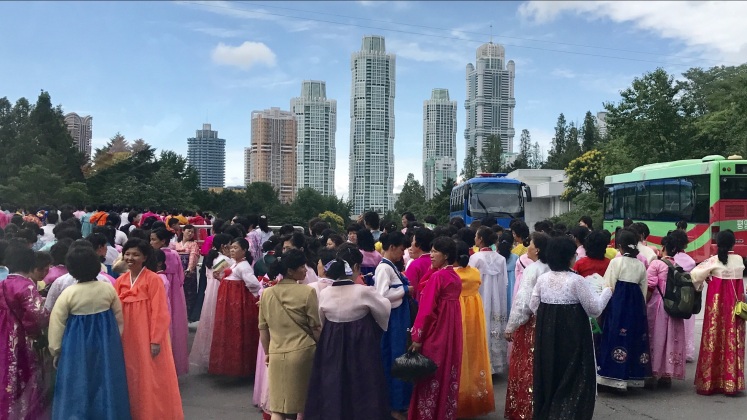China and Russia have put forward a draft resolution at the the United Nations Security Council to ease economic sanctions on North Korea, in particular relaxing the latest rounds of restrictions imposed in 2017 on the East Asian state’s export of statues, textiles, and seafood and its imports of refined petroleum. Western drafted sanctions resolutions were imposed that year amid rising tensions between Pyongyang and the Western world, when the United States and its allies were very seriously considering an unprovoked attack on North Korea which it was later revealed could have included mass nuclear strikes. While deployments of Chinese and Russian assets and staging of military exercises around Korea were seen as a means to deter Western military action, allowing the passage of sanctions through the UN Security Council was seen as a means to reduce the possibility of war by providing an alternative means for the West to apply pressure. Beijing and Moscow have since argued that sanctions should be removed “with the intent of enhancing the livelihood of the civilian population,” although Western parties have remained adamant that they remain in place.

The Chinese and Russian resolution calls on the council to recognise “the difficult situation of economy and livelihood of the DPRK (Democratic People’s Republic of Korea – North Korea) in recent years, underscoring the necessity to respect the legitimate security concerns of the DPRK, and ensure the welfare, inherent dignity, and rights of people in the DPRK.” It also stipulates lifting sanctions on the country’s shared road and train projects with neighbouring South Korea and the removal of a ban on North Koreans working abroad. The U.S. and North Korea notably came close to a deal that could relax sanctions in return for some restrictions on the latter’s nuclear weapons program in February 2019, although this was scuppered by an unexpected last minute demand from the American delegation for a more total surrender of North Korean assets including information on its non-nuclear assets which was flatly rejected and led to the breakdown of talks. North Korea and the United States have been technically at war for over 70 years, and the East Asian state has focused its military investments in recent years on acquiring superior strike capabilities to hold cities on the American homeland and assets across the Western Pacific at risk in order to deter U.S. military action.
